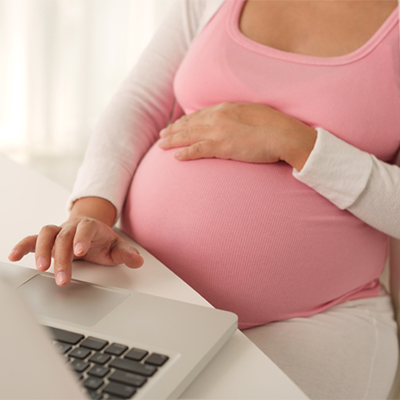 Citizens Advice has reported a 25% surge in people seeking advice on pregnancy and maternity discrimination over the last 12 months, accompanied by a 22% increase in people accessing its web advice on this topic. Pregnant employees and new mothers have sought advice from them on a wide range of issues including a reduction in hours, being placed on zero hours’ contracts, pressure to return to work early from maternity leave, being made redundant or dismissed and even being forced out of their jobs.
Citizens Advice has reported a 25% surge in people seeking advice on pregnancy and maternity discrimination over the last 12 months, accompanied by a 22% increase in people accessing its web advice on this topic. Pregnant employees and new mothers have sought advice from them on a wide range of issues including a reduction in hours, being placed on zero hours’ contracts, pressure to return to work early from maternity leave, being made redundant or dismissed and even being forced out of their jobs.
These statistics follow recent research published this year by the Equality and Human Rights Commission which found that 77% of mothers reported a negative or possibly discriminatory experience during their pregnancy, maternity leave or upon their return to work, which when scaled up amounts to 390,000 mothers in the general population. One in nine mothers reported feeling forced to leave their job and one in five had experienced harassment or negative comments from colleagues or their employer in respect of their pregnancy or where flexible working practices had been implemented.
There is already a comprehensive statutory framework which applies to all pregnant employees and employees who are on maternity leave or returning to work. Key rights include time off for antenatal appointments, health and safety protection while pregnant and breastfeeding, up to 52 weeks’ maternity leave regardless of length of service, Statutory maternity pay (SMP) for up to 39 weeks (for eligible employees), the right to return to the same job, the right to be made a priority for alternative employment in redundancy cases and the right to request flexible working conditions on return to work (although this right has recently been extended to all employees with 26 weeks’ service who have not made a request in the preceding 12 months).
In addition to these statutory rights, pregnancy and maternity are classed as a “protected characteristic” under the Equality Act 2010 and women are therefore afforded protection from dismissal, detriment or discrimination by reason of pregnancy or maternity. The Equality Act itself not only applies to employees but to a wide range of individuals, including agency workers and self-employed contractors, all of whom are protected from suffering discrimination as a result of pregnancy or maternity. In addition, the Equality Act prohibits indirect discrimination, harassment and victimisation and, although maternity and pregnancy are excluded from these provisions, there is nothing to prevent a woman from bringing a claim based on the protected characteristic of sex.
Employers should be concerned about these findings. It is automatically unfair to dismiss a woman or to select her for redundancy when the reason (or principal reason) for the dismissal or selection is connected to her pregnancy, statutory maternity leave or the fact that she has given birth. Any claim brought would almost certainly include a claim for discrimination and successful discrimination claims come with hefty and uncapped compensatory awards. Where discrimination occurs which is perpetrated by an employee, unless an employer can show it has taken reasonable steps to prevent that discrimination occurring, the employer will be liable alongside the employee.
Somewhat conversely, the Equality and Human Rights Commission’s research reported that 84% of employers indicated that they believed it was in their interests to support pregnant employees and new mothers, particularly as they believed this would increase staff retention and improve morale. While this is clearly a positive finding, it is also suggestive of employers being out of touch with the experiences of their pregnant employees and those who have returned to work following a period of maternity leave, and begs the question as to what family friendly policies and procedures these employers have in place and whether they in fact follow them.
The Equality and Human Rights Commission have made 6 recommendations on the back of their research to tackle pregnancy and maternity discrimination, one of which is improving employer practice. From an employment law perspective, employers must ensure they have legally compliant foundations in place to ensure pregnant women and new mothers are afforded their statutory rights and are not discriminated against, in order to protect themselves from being on the receiving end of a complex and costly discrimination claim.





